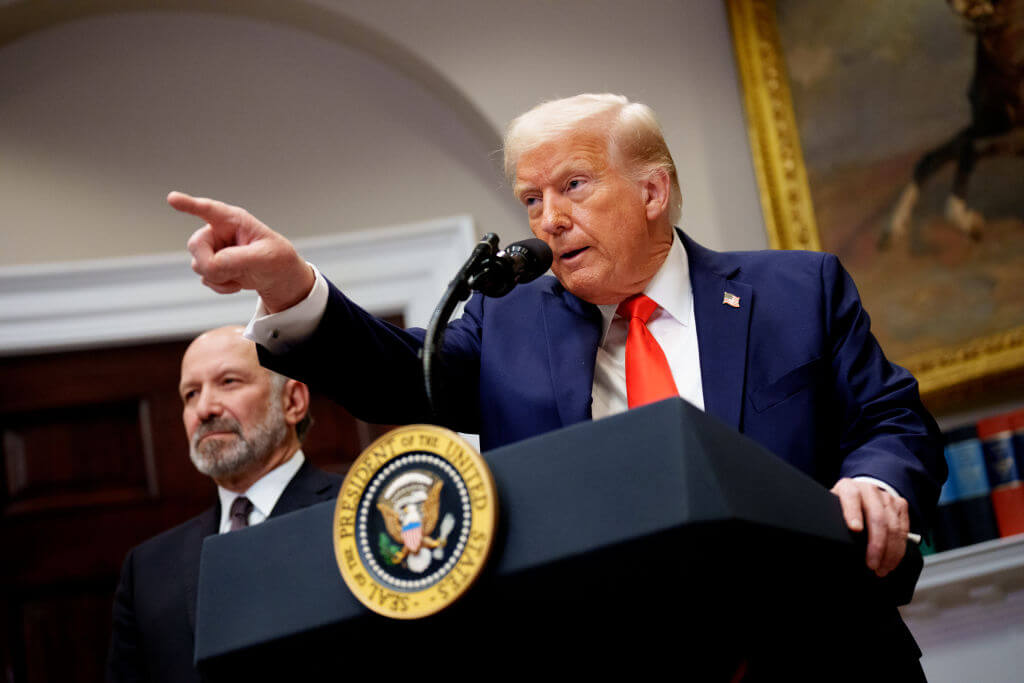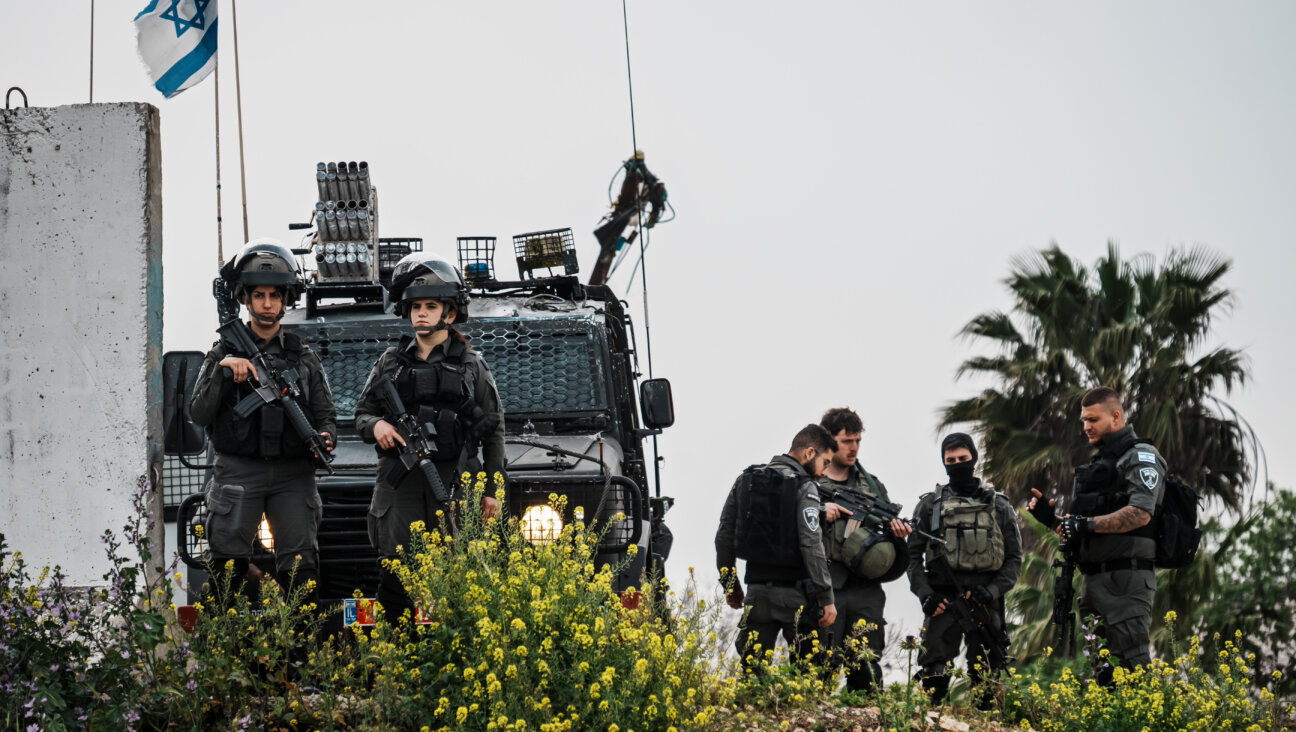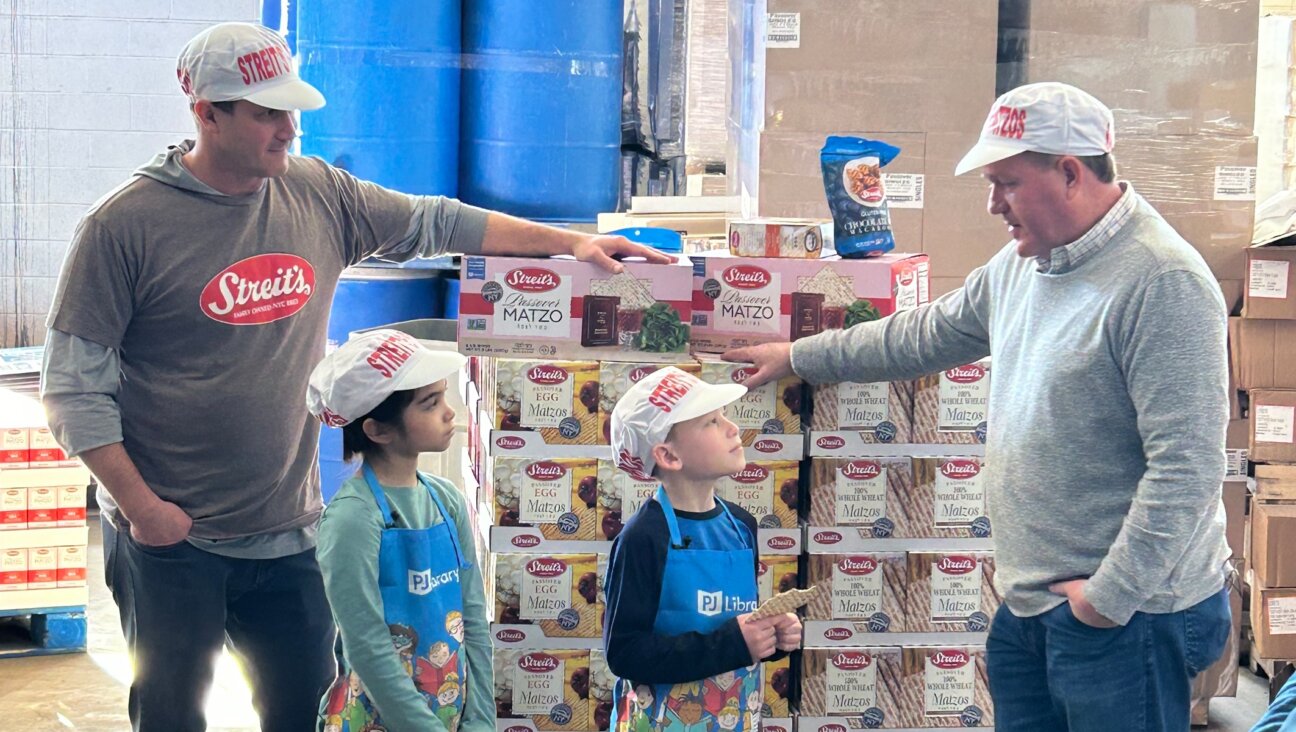Palestinian Artists Find Venezuelan Ally
Washington – Pro-Palestinian activists, seeking ways to commemorate the 40th anniversary of 1967’s Six Day War, have found a new ally in Washington: the Venezuelan Embassy. An art exhibit titled “Made in Palestine,” launched Monday under the embassy’s auspices, depicts life in the occupied territories through the eyes of Palestinian artists.
The exhibit, one of a variety of events scheduled this week to mark the anniversary of the war, is the only one to receive diplomatic sponsorship. Venezuela is among the few non-Arab countries represented in Washington that maintain a pro-Palestinian policy and that routinely attack Israel’s conduct.
“Venezuela has a very long relationship with the Palestinians. We are promoting the idea of solidarity among the people,” said Patricia Abdelnour, the embassy’s cultural attaché.
The small exhibition hall at the Venezuelan Embassy, located in Washington’s Georgetown neighborhood, could accommodate only a fraction of the original exhibit, which was previously shown in Houston and New York. Most of the works chosen represent the hardship of Palestinian life under Israeli occupation, as well as the notion of martyrdom in Palestinian society.
In a huge mural that takes up an entire wall, artist John Halaka portrays a black-on-gray march of faceless refugees. Close inspection shows that the mural’s figures were made with a small rubber stamp bearing the words “forgotten survivor.”
Artist Noel Jabbour presented three photographs centering on Palestinian “martyrs” killed in the struggle against Israel. In large color photos, Jabbour positions family members around posters of their deceased son. Posters of martyrs have become central to the symbolism of the second intifada.
Phyllis Bennis of the Institute for Policy Studies, the progressive Washington think tank sponsoring the exhibition, said that the Venezuelan decision to host the art show is “reflective of a kind of internationalism that isn’t around anymore.” Bennis, who is Jewish, said that while it is “not easy” to find sponsors in Washington for a pro-Palestinian event, “it is not nearly as difficult as it used to be.” According to Bennis, voices critical of the pro-Israel lobby and the fact that Jews are participating in Palestinian advocacy groups are ushering in a new era of openness with regard to the Palestinian issue in America.
The relationship between Venezuela and Israel has been strained ever since Venezuelan President Hugo Chavez began adopting an increasingly pro-Arab and anti-American line. Chavez’s ties to Iran and Hamas, and his criticism of Israel (which reached its peak during last summer’s war in Lebanon, when Chavez claimed that Israel’s actions are “what Hitler did against the Jews”), have led to intense tension between the two countries.
Venezuela was among the first to engage with Hamas leaders, and recently it has strengthened ties with Iranian President Mahmoud Ahmadinejad. Abdelnour said Monday that her government had made clear that the ties with Iran should not be seen as an endorsement of Ahmadinejad’s rhetoric against Israel and the Jews.
Last week, legislation introduced in Congress called on the administration to work with American neighbors to ensure that action is taken against Latin American terrorist organizations within their countries. The authors of the proposed bill — Democrat Ron Klein and Republican Connie Mack, both from Florida — point to Chavez as one of the problems with which the administration needs to deal, stating that Chavez “has been building alliances with proven enemies of freedom.”
The central pro-Palestinian event commemorating the war is a June 10 Washington demonstration followed by a concentrated political advocacy effort the next day. Pro-Palestinian groups will also mark the anniversary with seminars, memorial services and political action events.
The Forward is free to read, but it isn’t free to produce

I hope you appreciated this article. Before you go, I’d like to ask you to please support the Forward.
Now more than ever, American Jews need independent news they can trust, with reporting driven by truth, not ideology. We serve you, not any ideological agenda.
At a time when other newsrooms are closing or cutting back, the Forward has removed its paywall and invested additional resources to report on the ground from Israel and around the U.S. on the impact of the war, rising antisemitism and polarized discourse.
This is a great time to support independent Jewish journalism you rely on. Make a Passover gift today!
— Rachel Fishman Feddersen, Publisher and CEO
Most Popular
- 1

Opinion My Jewish moms group ousted me because I work for J Street. Is this what communal life has come to?
- 2

Fast Forward Suspected arsonist intended to beat Gov. Josh Shapiro with a sledgehammer, investigators say
- 3

Politics Meet America’s potential first Jewish second family: Josh Shapiro, Lori, and their 4 kids
- 4
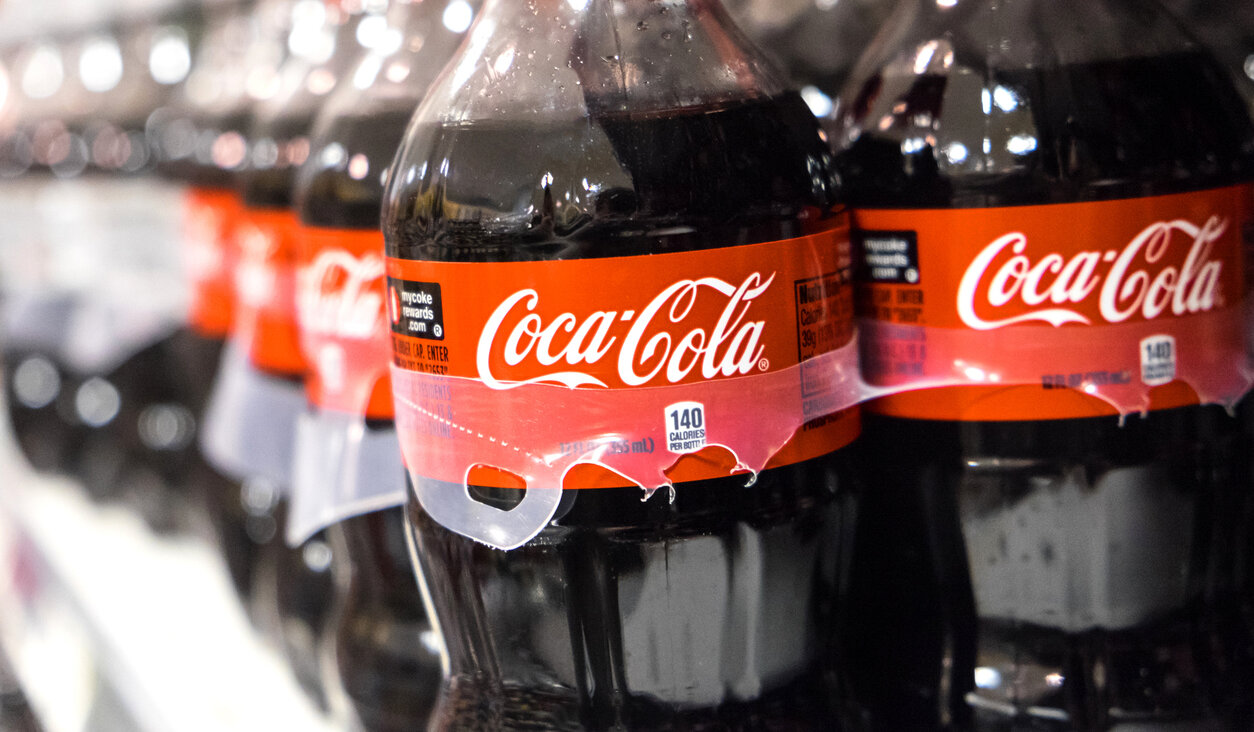
Fast Forward How Coke’s Passover recipe sparked an antisemitic conspiracy theory
In Case You Missed It
-
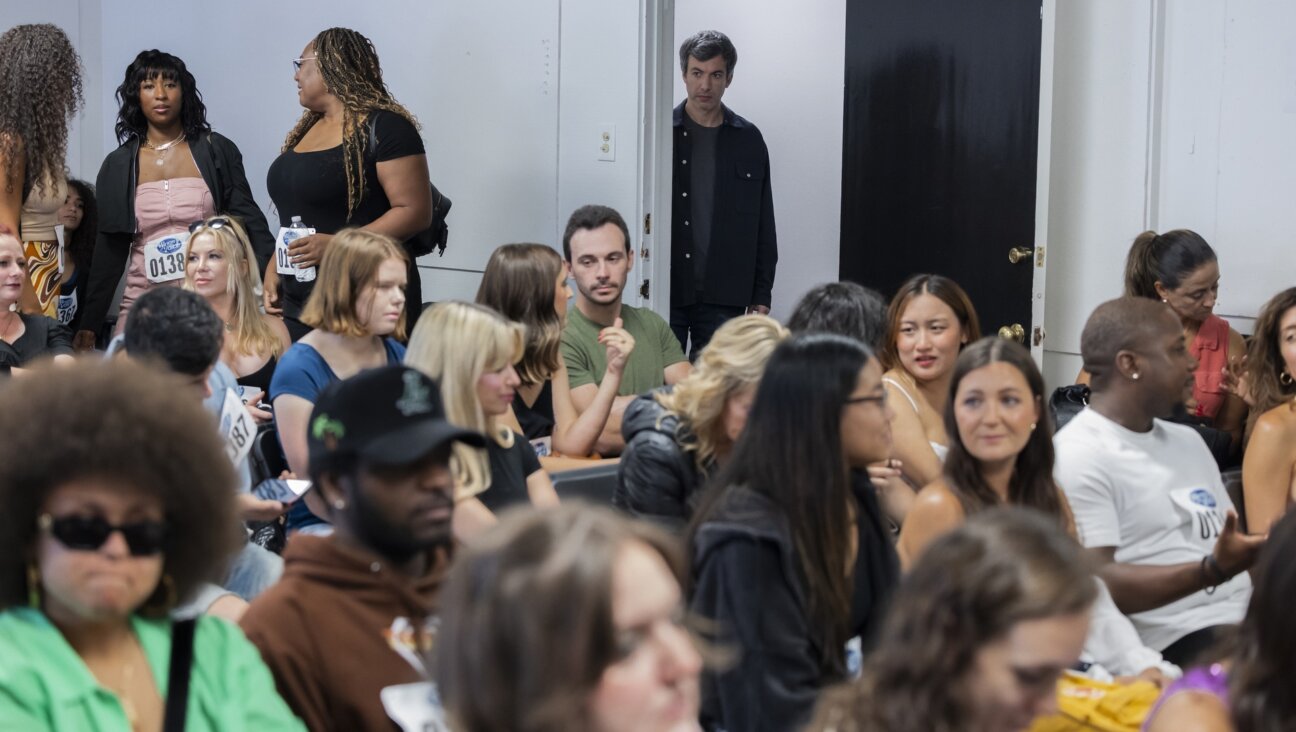
Film & TV In ‘The Rehearsal’ season 2, is Nathan Fielder serious?
-
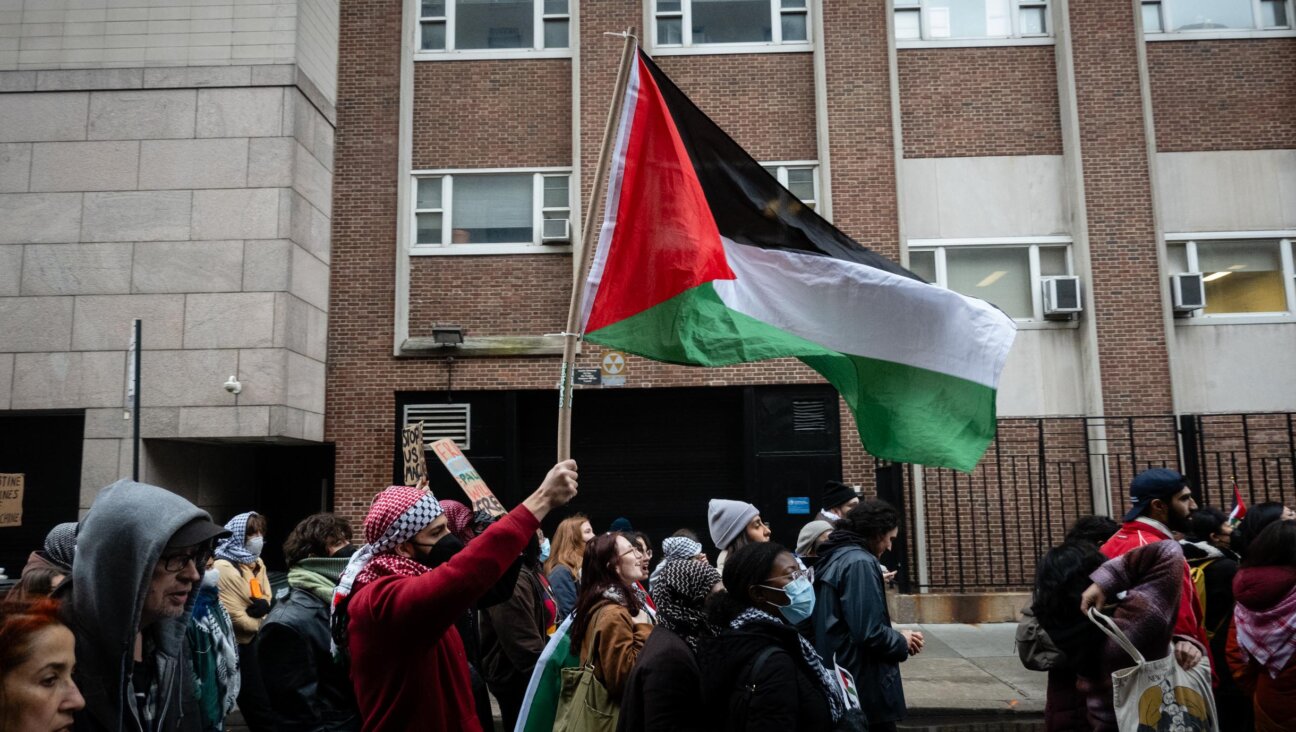
Fast Forward Pro-Israel groups called for Mohsen Mahdawi’s deportation. He was arrested at a citizenship interview.
-

News Student protesters being deported are not ‘martyrs and heroes,’ says former antisemitism envoy
-
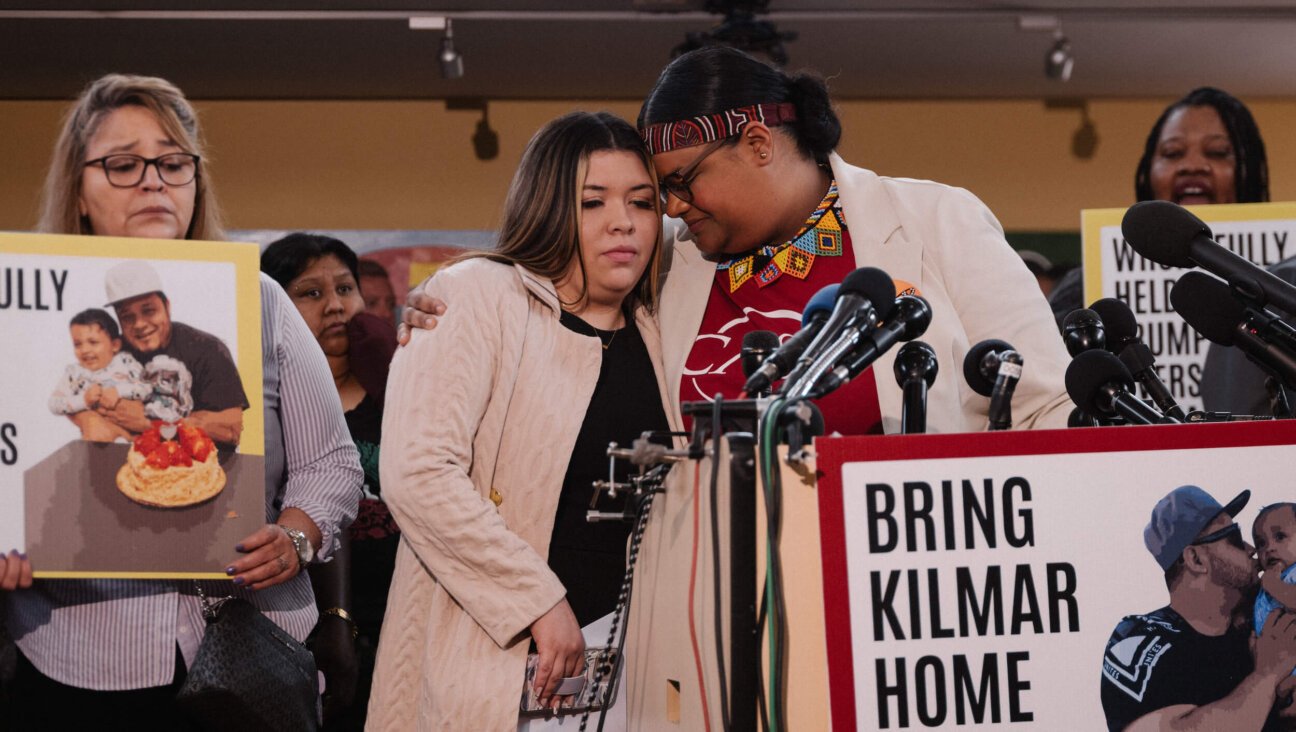
Opinion This Nazi-era story shows why Trump won’t fix a terrifying deportation mistake
-
Shop the Forward Store
100% of profits support our journalism
Republish This Story
Please read before republishing
We’re happy to make this story available to republish for free, unless it originated with JTA, Haaretz or another publication (as indicated on the article) and as long as you follow our guidelines.
You must comply with the following:
- Credit the Forward
- Retain our pixel
- Preserve our canonical link in Google search
- Add a noindex tag in Google search
See our full guidelines for more information, and this guide for detail about canonical URLs.
To republish, copy the HTML by clicking on the yellow button to the right; it includes our tracking pixel, all paragraph styles and hyperlinks, the author byline and credit to the Forward. It does not include images; to avoid copyright violations, you must add them manually, following our guidelines. Please email us at [email protected], subject line “republish,” with any questions or to let us know what stories you’re picking up.









